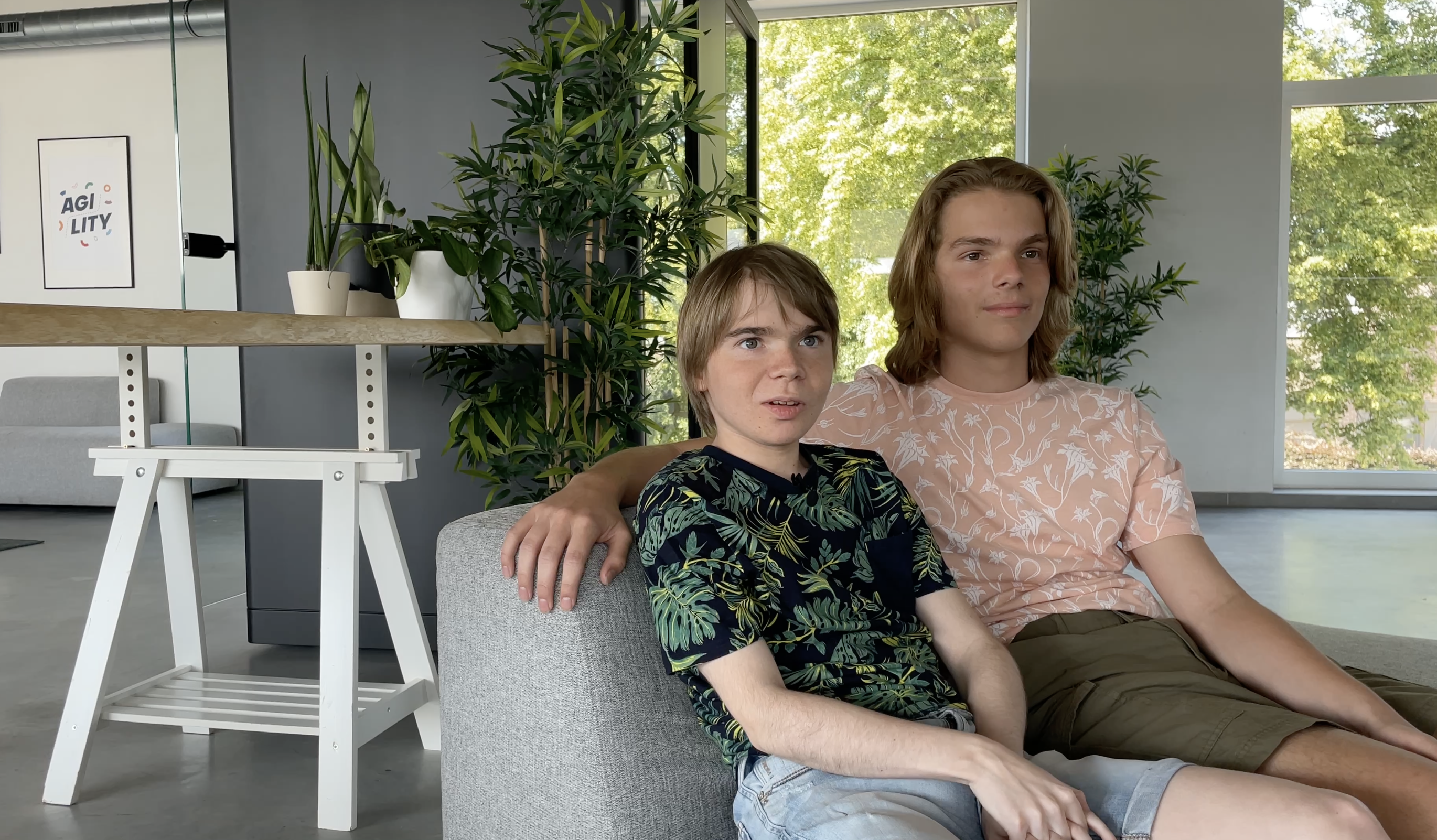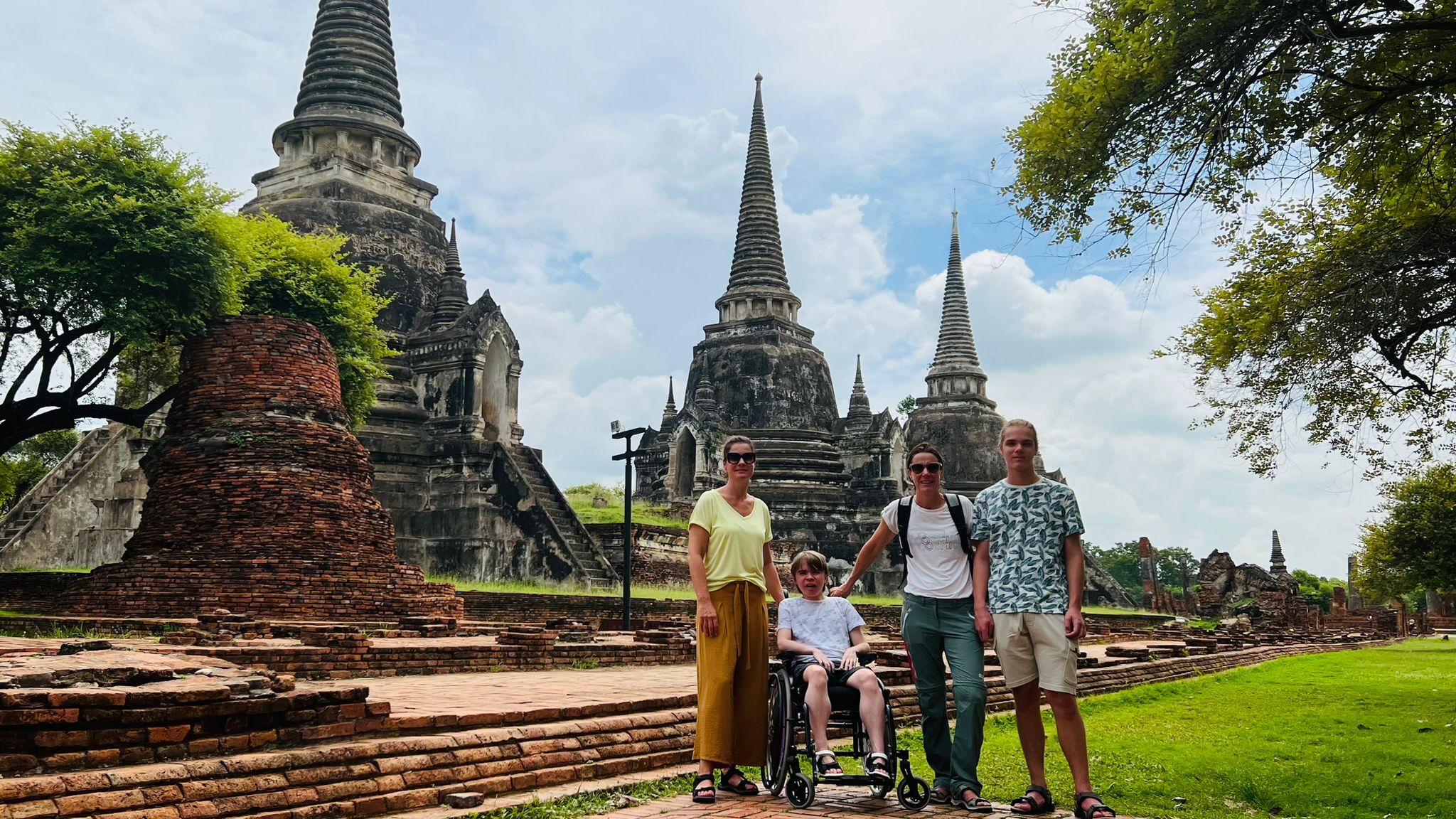Do you organize events every year?
We've been organizing events sporadically rather than systematically. We've held breakfasts, sold fruit baskets, organized brunches, guided walks, and pancake bakes. We're planning to structure our efforts more to scale up in the future. That's why we decided to build a website to spread our message.
Goforlander was started for your son, Lander. Could you tell us about him?
After Lander was born, a heel prick test showed high CK values, indicating muscle cell breakdown. However, a second test showed normal values. When Lander was nine months old, he seemed less active and always tired. Further tests initially suggested Lyme disease, but it turned out to be a muscle disorder.
"Lander's journey has been somewhat better than initially predicted."
We were referred to Antwerp for genetic tests, which confirmed Duchenne. We didn't know much about Duchenne then. It's a genetic muscle disorder affecting 1 in 5000 boys. From the age of two, the condition worsens, and by twelve to fourteen, Lander would likely need a wheelchair. His life expectancy was estimated to be under thirty years.
How did your family cope with this?
It was devastating. We immediately had tests done to check for genetic abnormalities as we were considering having another child. Duchenne is usually inherited from the mother, but Jill didn't have the abnormality. In Lander's case, it was a mutation, a stroke of bad luck. But we didn't let it deter us; we now also have a second son, Daan.
.jpg)
How were the initial years?
Lander's journey has been somewhat better than initially predicted. He lost mobility and had difficulty running. The contrast became more apparent when we had our second child. Making decisions for your child, like transitioning from a stroller to a wheelchair at five, is tough. Regular trips to Leuven for research were also challenging.
How has his condition progressed?
Initially, Lander could climb stairs independently. But over time, he lost that ability. He started falling more due to walking on his toes and brittle bones. Any fall can be serious for Lander. He's been using an electric wheelchair for a year now, which has given him more freedom and joy.
How is school for him?
Lander is doing well at school. He's studying STEM and getting good grades. His school, Sint-Clara college, has been very supportive, adjusting schedules and providing a buddy to help him with the elevator. Despite being one of the only children with a disability, Lander doesn't want to be treated differently. He's a positive, hopeful individual who lives in the present without worrying about the future.

What does Lander do in his free time?
Although he can't participate in sports, Lander enjoys going to the art academy and gaming. He and his brother Daan also go to a Sporta Kamp once a year, which allows them to escape the home environment together.
I understand Lander is participating in a study.
About a year and a half ago, Lander was invited to participate in a study for a medication originally used to stabilize scar tissue formation in cancer patients. The goal is not to cure Duchenne, but to extend and improve his quality of life.

s there progress?
It's hard to tell if it's working. Lander can't compare how he would feel without it. But the overall study results are promising, which feels like a small victory. Lander is always positive and hopeful. We always discuss new studies with him to ensure he understands the potential impact on his life. But he always participates willingly.
Are there many studies on Duchenne?
There are quite a few, but not many focus on Lander's specific condition. Most studies aim to repair or 'cover' one piece of genetic code. Lander has a duplication of erroneous pieces in his genetic code, so a potential remedy would need to fix eight parts instead of one. We're not there yet.
Is there much research on Duchenne in Belgium?
There isn't much specific research on Duchenne. However, Belgium is a leader in gene therapies, which could indirectly benefit diseases like Duchenne.
How do you see the future?
As a family, we focus on the present. The children love to travel, and that's what we do in our free time. We're soon going to Thailand. We face potential obstacles head-on and make the most of our time together. These are our milestones, and we live for them.

.jpg)




